The doctrine of adverse possession is an intricate aspect of property law, yet many property owners remain unaware of what it entails or how it might affect their ownership. In this blog, we'll dig into how adverse possession works in California and how it impacts both residential and commercial property owners.
What Is Adverse Possession?
Adverse possession is a legal principle that allows a person to claim ownership of a piece of property without paying for it, under certain circumstances. The key here is that the individual claiming possession must be using the land as if they own it, and their use must be open and notorious, meaning it can’t be hidden or secret. In essence, this doctrine serves to ensure that land is used efficiently and that property rights remain clear and unambiguous.
These are some of the necessary requirements to claim adverse possession in California:
- Actual Possession: The individual must physically use the property for a set period. In California, this can be five or more years, depending on the situation.
- Open and Notorious: Their use of the property must be conspicuous and not clandestine.
- Hostile: This doesn't mean a violent property takeover. It means the person's use is without the owner's permission.
- Exclusive and Continuous: Their use must be exclusive to them and ongoing without any significant breaks.
- Statutory Period: The person claiming adverse possession must meet the time requirement set by state law.
In California, the statutory period for adverse possession varies based on whether the possessor is paying taxes on the property or not. The baseline is five years, but it can extend to fifteen when the possessor pays taxes on the property.
Adverse Possession for Homeowners in California
Adverse possession can be a concern for homeowners, particularly in scenarios involving disputed property lines or long-standing usage of land. As a homeowner in California, you should remain vigilant about any encroachments or unauthorized uses of your land by neighbors or third parties. Over time, such encroachments might develop into claims of adverse possession if they aren’t addressed in time.
You can protect your interests by taking the following measures:
- Regularly monitor your property and take note of any encroachments.
- Act quickly to address any trespassers or unauthorized uses of your property.
- Ensure that your property's boundaries are correctly identified, which may require a survey.
- Consider purchasing title insurance to mitigate any loss due to adverse possession claims.
It's important to note that under California law, one's own occupancy or use of land doesn’t suffice for adverse possession. The use must be consistent with the "claim of right" to the property. This means the possessor must treat the land as if it's rightfully theirs, often maintaining it, improving it, and paying taxes on it.
Commercial Properties & Adverse Possession
For owners of commercial properties, adverse possession can be a significant concern due to the larger scale and often vacant nature of these properties, which can make them more susceptible to unauthorized use.
In the case of commercial properties, the stakes are usually higher, especially if the property is of significant value or if there are multiple parties involved. Monitoring commercial property for adverse possession claims can be complex, and therefore, preventive measures such as regular property check-ups, improved security, and detailed record-keeping become crucial.
If you're dealing with a potential adverse possession issue concerning commercial property, prompt legal action is critical. California's commercial real estate market is highly competitive, and any cloud on title can affect the value and marketability of property.
Seek Legal Counsel When Dealing with Adverse Possession
Navigating an adverse possession claim in California is not something you should take on alone. Given the complexities of the state's laws and the potential impact on property rights, legal counsel from a firm well-versed in California real estate law is highly recommended.
Purdy & Bailey, LLP can provide comprehensive legal guidance on adverse possession matters. Whether you're defending against a claim or considering bringing one, our professional legal support can be invaluable in ensuring your rights are protected and your interests are vigorously defended.
Contact us today to request a consultation and learn more about how we can help.

